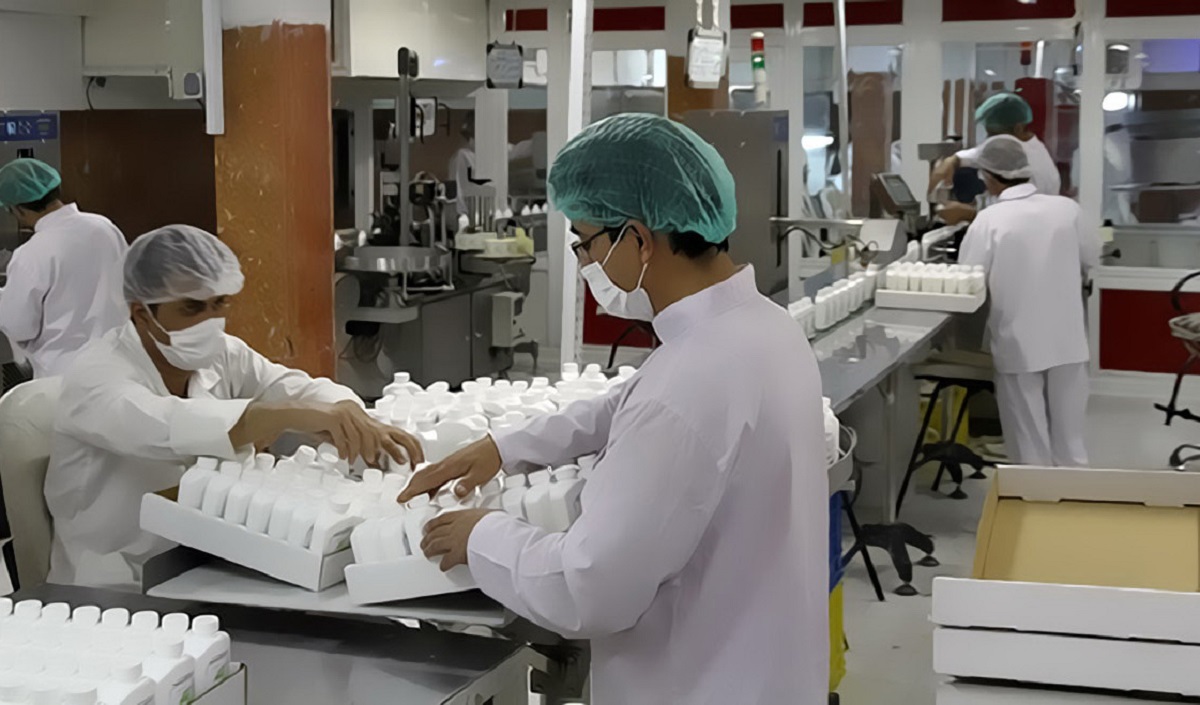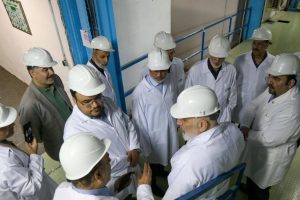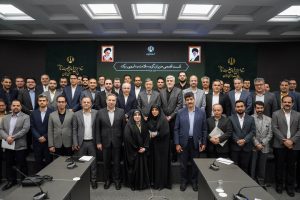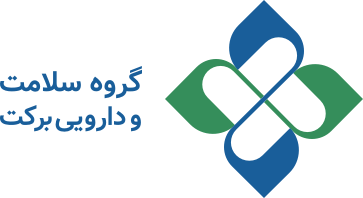
فهرست مطالب
برای امتیاز به این نوشته کلیک کنید!
[کل: 0 میانگین: 0]
Domestic Pharmaceutical Production: A Strategic Foundation for Iran’s Health Sovereignty
Barekat Pharmaceutical & Health Group: In today’s fragile geopolitical landscape—marked by supply chain disruptions, global pandemics, and economic sanctions—domestic pharmaceutical manufacturing is no longer a matter of convenience. It is a strategic necessity and a cornerstone of national health security.
For Iran, with its strong scientific infrastructure and industrial capacity, investing in local drug production is not merely a response to current demand.
It is a visionary approach to building a resilient, self-sufficient, and export-capable health ecosystem. This multidimensional report explores why local manufacturing is not just for today—it is the bedrock of tomorrow’s independent and competitive healthcare system.
Redefining Sovereignty: Beyond Imported Solutions
Reliance on foreign supply chains exposes countries to severe vulnerabilities during global crises. The COVID-19 pandemic made it clear that even the most advanced nations struggled to secure essential medicines and raw materials.
By investing in active pharmaceutical ingredients (APIs) and full-cycle drug formulation, Iran has already made significant progress in meeting domestic demand. However, real pharmaceutical sovereignty requires more: sustained investment, quality assurance, national distribution systems, and guaranteed long-term supply.
Global Reach: Turning Production into Competitive Advantage
The pharmaceutical industry is evolving rapidly, becoming more data-driven, innovative, and globally competitive. Countries such as Turkey, India, and the UAE have aggressively expanded into Asian, African, and European markets.
Iran possesses the scientific and technical capacity—especially through its knowledge-based companies—to enter the global stage. The growing presence of Iranian-made biologics in regional markets demonstrates this potential. Yet sustainable success in exports depends on regulatory alignment, global certification, international branding, and intellectual property protection.
Health Security: Ensuring Access When It Matters Most
Local production is not just about having medicines on the shelf—it’s about securing access to life-saving treatment when global systems fail. For Iran, sanctions have directly affected the availability of critical medications, leading to increased mortality and treatment disruption for patients with chronic and rare conditions.
A stable domestic pharmaceutical industry, backed by predictable pricing and robust supply chains, ensures continuity of care. Achieving this requires coordinated action between health authorities, industry leaders, and regulatory agencies.
From Copying to Creating: The Innovation Imperative
Long-term success cannot rely on replication or basic formulation. Iran must transition from assembly-based manufacturing to research-driven innovation. Globally competitive pharmaceutical companies are those that invest in R&D, develop new molecules, and pioneer biotech solutions.
Encouragingly, Iran’s biotech sector is on the rise. Several firms have entered the biologics space, creating novel formulations and recombinant therapies. Strategic investment in this area—public and private—can position Iran as a regional innovation hub, if accompanied by a global outlook.
A Driver of Talent & Economic Transformation
The pharmaceutical sector is uniquely positioned to create high-value, specialized, and sustainable employment. Especially in areas such as biotechnology, it draws upon a diverse pool of professionals—chemists, engineers, pharmacologists, and process specialists.
The pharmaceutical sector is uniquely positioned to create high-value, specialized, and sustainable employment. Especially in areas such as biotechnology, it draws upon a diverse pool of professionals—chemists, engineers, pharmacologists, and process specialists.
Expanding local production retains top talent, counters brain drain, and fuels a knowledge-based economy. As Iran reduces its dependence on oil revenues, the pharmaceutical industry offers a viable path to long-term economic diversification.
Equity in Access: Healthcare for Every Citizen
A strong pharmaceutical sector serves all segments of society—urban and rural, rich and poor. Local production, when paired with smart subsidies and fair pricing models, ensures that life-saving drugs remain accessible and affordable.
Importing expensive medications without strategic regulation risks deepening the healthcare divide. In contrast, a robust domestic industry supports national goals of equity, social health, and inclusive growth.
Shared Responsibility: Government & Industry in Partnership
Pharmaceutical self-reliance requires more than private sector effort. It demands intelligent policy, long-term vision, and public support. The government must provide a stable regulatory environment, tax incentives, and insurance reforms while facilitating global registration of domestic drugs.
Meanwhile, the private sector must commit to transparency, quality, and ethical branding to earn the trust of both healthcare providers and the public. This mutual commitment will shape a resilient, globally competitive pharmaceutical future for Iran.
Looking Ahead: More Than a Product, a National Vision
Domestic pharmaceutical production must be viewed not simply as industrial output, but as a national project. When driven by innovation, global integration, and future-ready thinking, it can transform Iran into a regional power in life sciences and health security.
If managed strategically, local drug production is more than a solution for today’s shortages—it is the foundation for a healthier, stronger, and more independent Iran.
برای امتیاز به این نوشته کلیک کنید!
[کل: 0 میانگین: 0]
مطالب مرتبط
-
Afghanistan’s Ministry of Public Health Delegation Meets Barkat Pharmaceutical Group Executives

-
Voice of Life in World of News — Redefining Health Journalism in the Information Age

-
Senior Health Officials & Barkat GD Visit Sobhan Oncology

-
Barkat Group specialized meeting

-
Safa Appointed as Barekat General Director

-
Barekat Health & Pharmaceutical Group at the 10th Iran Pharma Exhibition

-
Ali Safa visits Sobhan Oncology & Sobhan Darou

-
Pirsalehi & Safa visit Saman Daroo 8 Knowledge-based Company

